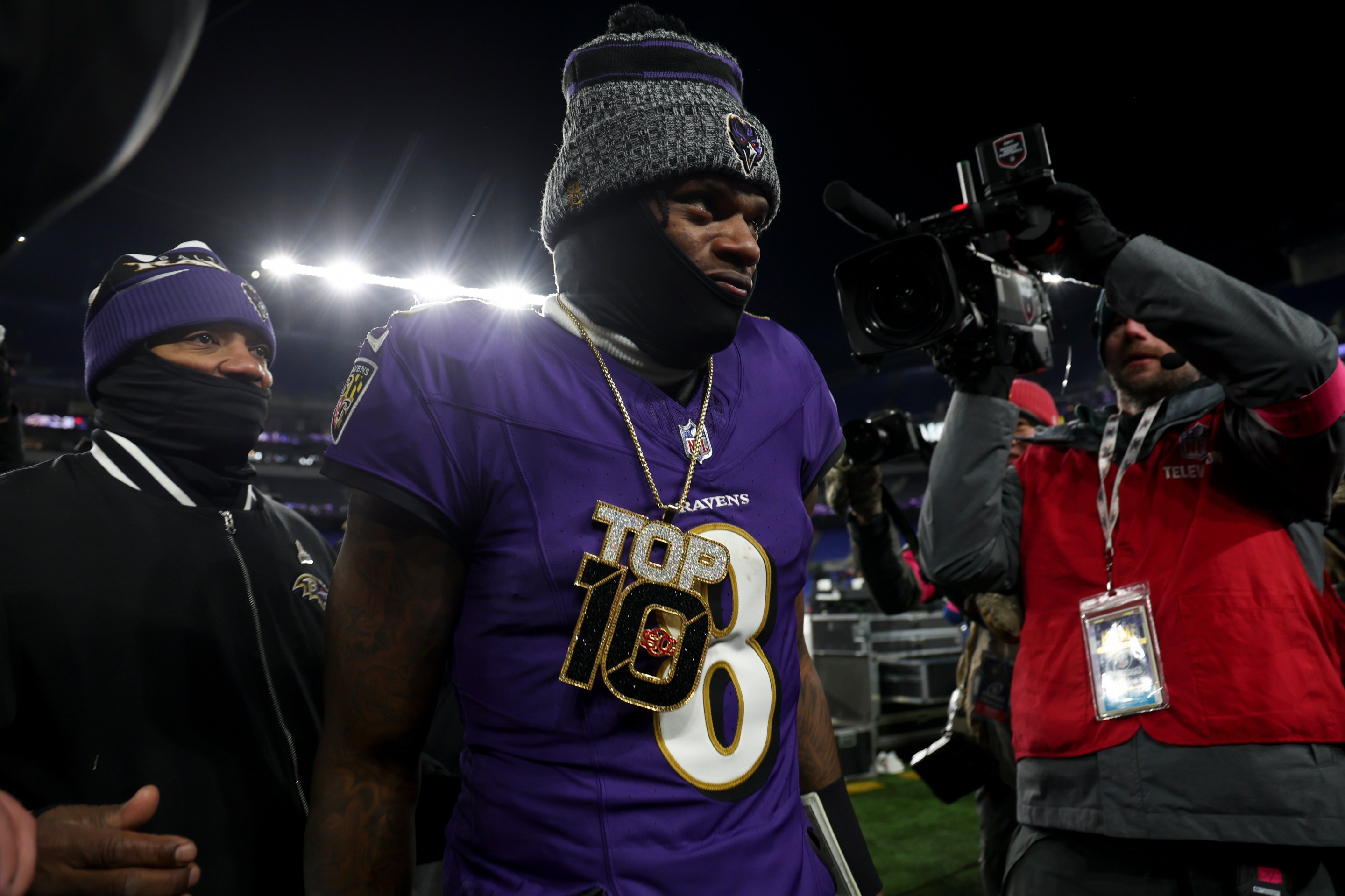When considering the Baltimore Ravens' 34-10 divisional round win over the Houston Texans, you might conclude that there there wasn't much significance to the result, beyond a great team predictably punching its ticket to the AFC Championship game. Perhaps you watched Baltimore all year, with your eyes, and saw that this team tends to do this to other good teams, particularly in the back half of the season. You might be a perceptive observer, or a Baltimore fan, or just a fan of good football who noticed that this team, that previously could be a bit one-note on offense and defense, was revitalized this season. New schemes installed on both sides of the ball, new key players filling out the roster, and the presence of an ever-improving star quarterback all added up to a great team. You might have seen all this and thought, Well obviously this team won in this fashion, and moved on to their next opponent, whom they'll likely be favored against—nothing to see here.
But the game's result was more significant than that, due to the role Lamar Jackson played in producing it. Jackson entered Saturday's game in the unenviable position of being an objectively great quarterback who still needed to prove that he could be "clutch" or "win when it mattered." His playoff record prior to Saturday wasn't great: 1-3, with the one win coming in a game in which he managed to run for 136 yards and a score, but only threw for 179 yards and an interception. The extent of Jackson's culpability for Baltimore's previous postseason flameouts can be debated ad nauseam, but the fact remained that he needed to get over the hump.
It didn't help that people are so weird about Jackson. It wasn't so long ago that his own team acted like they wanted to be rid of him, and then kept him only after a bunch of other teams came out and declared they had no interest in signing a former MVP quarterback. Despite football existing for as long as it has, the idea of a true dual-threat QB still seems to bother a lot of people inside and outside of the league. It feels like we've progressed to the point where people now understand the value and necessity of a QB who can run, but still don't want to conceive of the best quarterbacks as "running quarterbacks." The arguments against Jackson have always clung to this idea that being an athletic freak at quarterback is somehow a detriment to winning, and his shoddy playoff record only gave that idea oxygen.
And then Jackson went out and smoked the Texans on Saturday, rushing and passing for a combined 252 yards and four touchdowns without turning the ball over. It was a performance that signaled the beginning of the end of the silly debates about Jackson's actual value to this team. It also clarified a lot about Jackson and the Ravens' past, present, and future. It was a reminder that there was an entire football team failing along with Jackson in those previous postseasons, and that everyone else needed to get over the hump just as badly as he did. Those previous playoff losses showed how stale the Ravens' schemes had become in an always-evolving league. They ran a predictable offense and defense, betting that their guys were so good it didn't matter. Though that mostly worked out in the regular season, the playoffs were a different story. There were no such deficiencies on display last night. Todd Monken's offense hummed under Jackson's guidance, and Mike Macdonald's defense made a meal of C.J. Stroud.
It was a stellar performance by the entire Ravens team that hopefully ended a dumb narrative and produced some clarity in its place. With so much of the angst that has defined this team during Jackson's tenure finally dispelled, it can now perhaps be seen for what it is: An ascendant AFC power with an improved roster, a star quarterback, and dynamic schemes. In other words, the Ravens can now just get on with being a great team.






